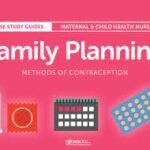
A new report by the Lancet finds almost 4.3 billion of reproductive age around the world will not get access to any adequate reproductive health services in all the years they are able to reproduce.
According to the study, some 200 million women worldwide in developing regions who want to avoid pregnancy are unable to use any modern contraception.
Without adequate services, up to 25 million unsafe abortions take place every year.
More than 350 million men and women end up needing treatment for sexually transmitted infections that could have been prevented. Among them, two million people are newly infected with HIV.
Read also Getting men to take responsibility for family planning
The report, a commission by the Guttmacher Institute was launched on the sidelines of the 71st World Health Assembly in Geneva.
It was first launched two weeks ago on South Africa’s Constitution Hill, a monument to prisons where women were historically incarcerated for crimes as simple as not having a passbook and suffered abuse at the hands of prison staff colluding with healthworkers, said Richard Horton, editor-in-chief of the Lancet.
The report has attempted to redefine sexual and reproductive health and rights for the first time since the Cairo 1994 International Conference on Population and Development (ICPD) which linked autonomy and empowerment of women to their own wealth and wellbeing as well their families, communities and sustainable development goals.
Twelve years from the ICPD, the new Lancet commission notes sexual and reproductive rights, initially omitted from the Millennium Development Goals, have suffered neglect.
“If anything more than the two decades of ICPD, there has been one constant: women’s bodies continue to be the battlegrounds on which ideological battles are fought, with devastating results,” experts wrote in the Lancet.
“Sexual and reproductive health and rights have been under attack for having being neglected,” said Michelle Bachelet, former Chilean president and new chair of the Partnership for Maternal, Newborn and Child Health.
She called for countries to implement recommendations contained in the Lancet Commission into universal health care, making them affordable and youth friendly.
“It requires stronger political commitment, and for that commitment to be transformed into action,” said Bachelet.
 |
| According to the study, some 200 million women worldwide in developing regions who want to avoid pregnancy are unable to use any modern contraception. |
“Essential package”
A major recommendation set forth by the commission is an “essential package” of sexual and reproductive health interventions to safeguard the health and rights of every population in need.
The package includes:
- · Comprehensive sexuality education
- · Counselling and services for a range of modern contraceptives, with a defined minimum number and types of methods
- · Antenatal, childbirth and postnatal care, including emergency obstetric and newborn care
- · Safe abortion services and treatment of complications of unsafe abortion
- · Prevention and treatment of HIV and other sexually transmitted infections
- · Prevention, detection, immediate services, and referrals for cases of sexual and gender-based violence
- · Prevention, detection and management of reproductive cancers, especially cervical cancer
- · Information, counselling and services for subfertility and infertility
- · Information, counselling and services for sexual health and wellbeing
“Priorities”
The report underscores the “need to prioritise”, said Zeba Sathar, a commissioner with the Population Council.
“It is critical to support changes in law and politics” to afford vulnerable women access to the services they need.
“The sad reality of the world we live in is that the poorest of the poor do not have access to these services,” said Nono Simelela, assistant director-general for family, women, children and adolescents at the World Health Organisation.
“We need to challenge countries with restrictive laws which still deny young people the services they need.”
Simelela said a practical move is to get politicians and leaders to take responsibility for girls and women who would otherwise be adversely affected in the absence of services they need for effective sexual and reproductive health and rights.
The report specifically outlines people in need: women, young people, men who need to be part of the sexual and reproductive rights discourse and people trapped in conflict situations and vulnerable to gender-based violence.
“In humanitarian settings, the need could be the same or even more desperate,” said Derejo Wordofa, deputy executive director for programmes at the United Nations Population Fund.
He noted the need in humanitarian situations across the Middle East, for instance: 10 million Iraqis in need of humanitarian assistance, 3.1 million of them internally displaced; some 444,000 women caught up in the Syrian conflict and pregnant. The Yemen conflict has put some 3 million women and girls in need of humanitarian assistance, nearly half a million of them pregnant.
“We need to engage with member states and ensure they make [the Commission recommendations] part of their health agenda,” said Wordofa.



